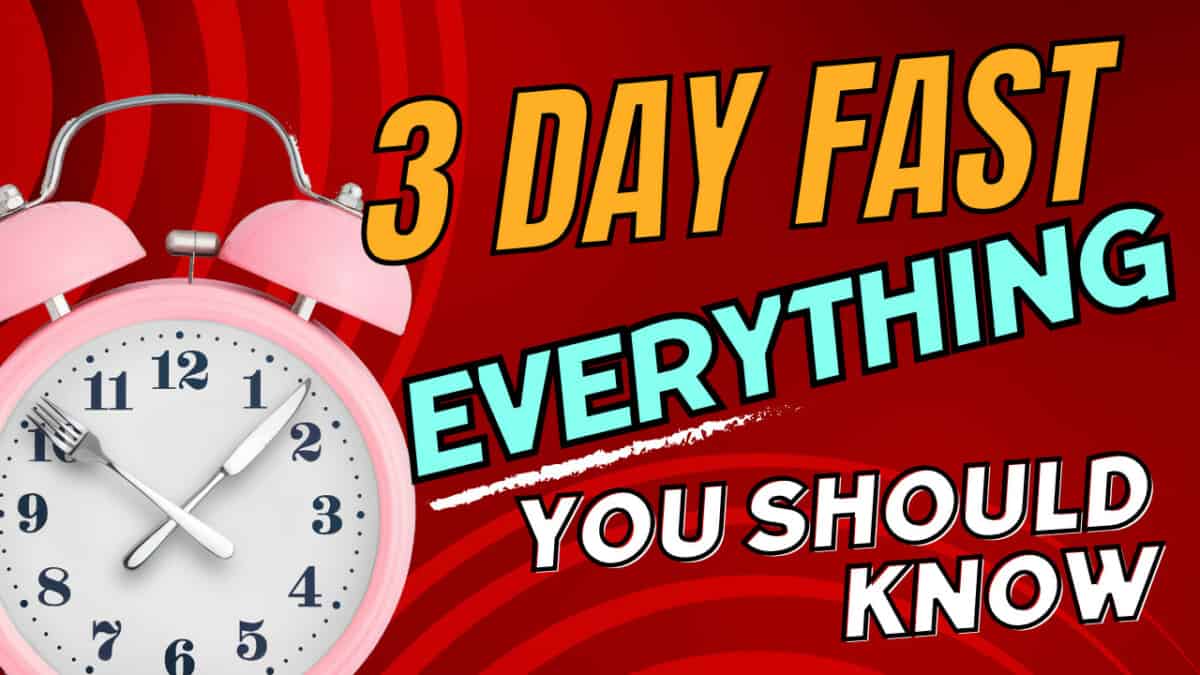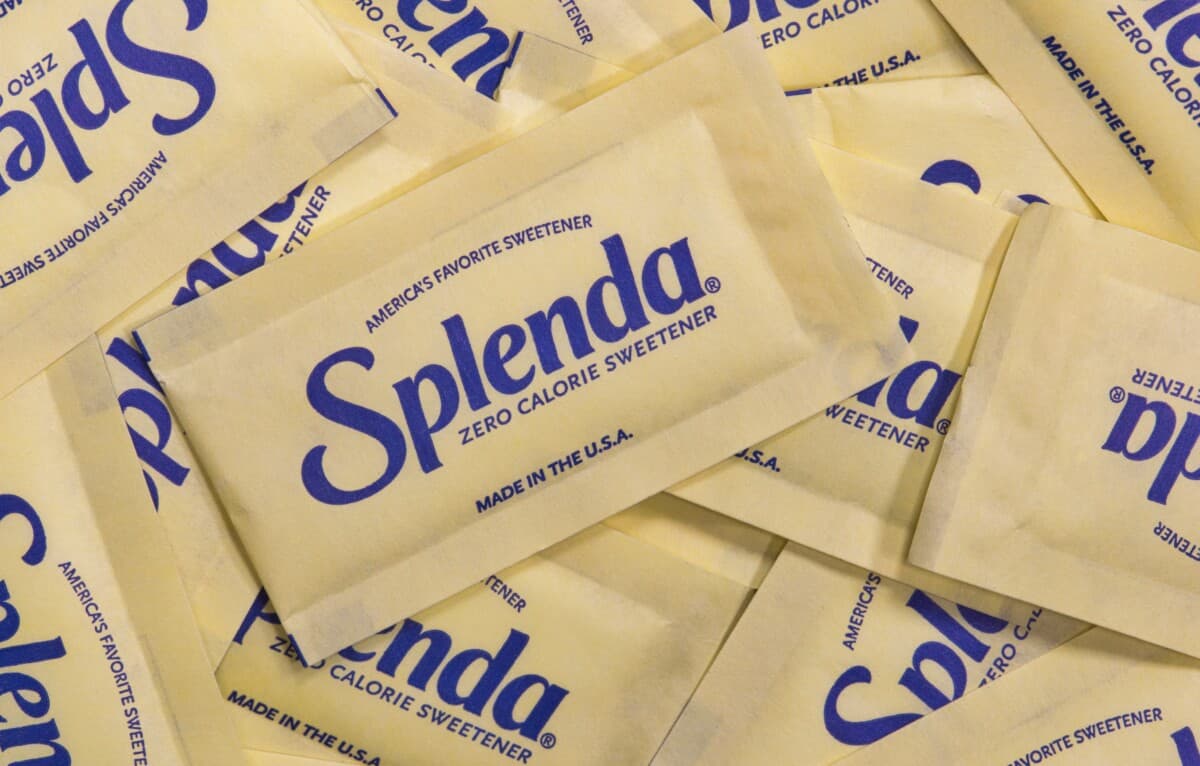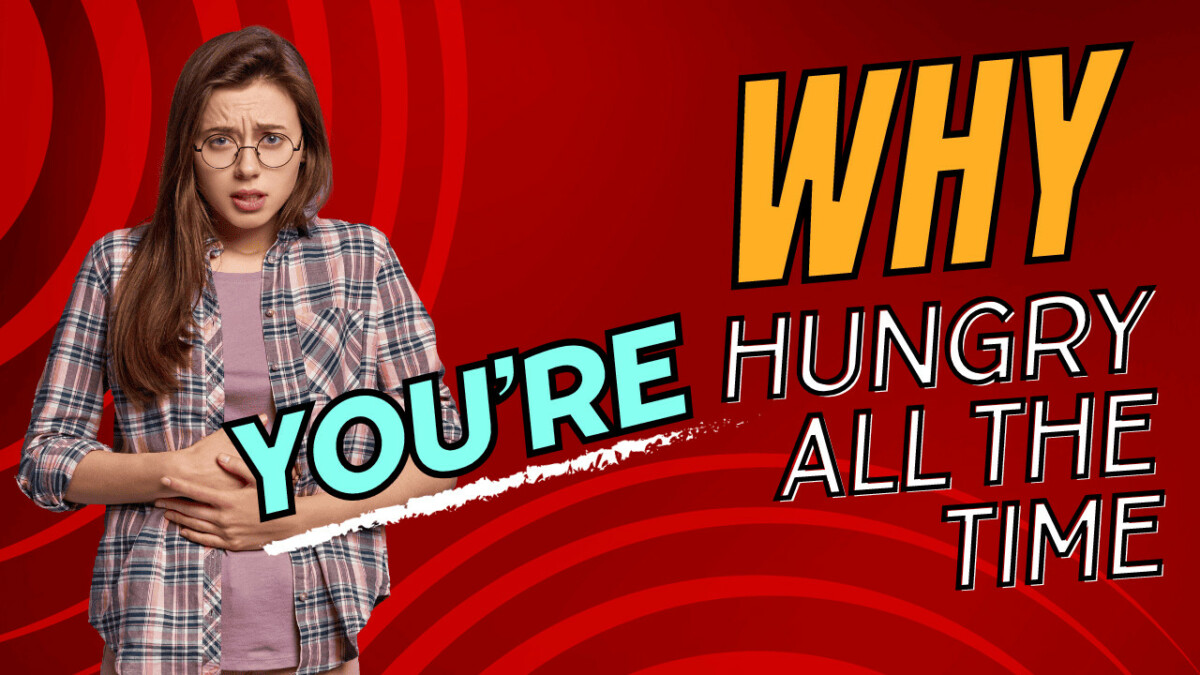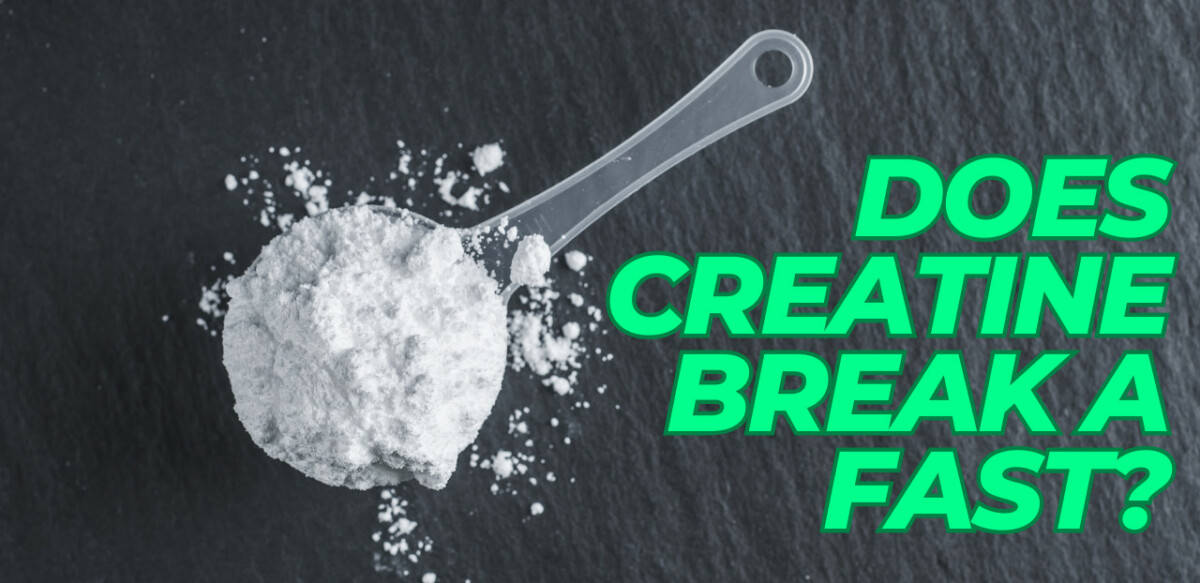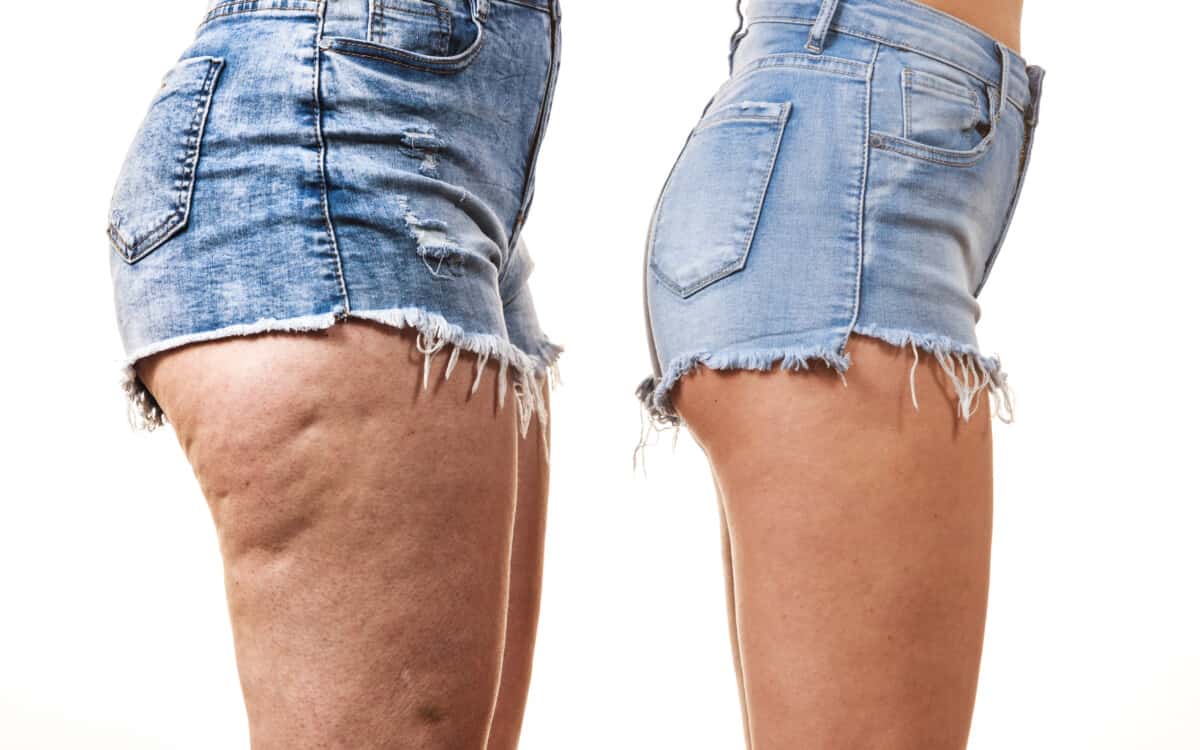Going on a 3-day fast can unlock significant health benefits and results in such a short amount of time. A 3-day fast might sound like the latest diet fad, but it’s a well-proven and researched way to quickly improve your health and lose weight.
Imagine feeling more energetic, having improved digestion, and even kickstarting weight loss in three days. But if you do the 3-day fast correctly or are prepared, you’ll set yourself up for disaster. The frustration will be real if you crash and burn without any results after working so hard.
The 3 day fast will introduce you to the power and simplicity of this short-term intermittent fasting diet. Here, you’ll discover the remarkable benefits, provide a practical how-to guide, and share real results from those who’ve successfully completed a 3 day fast.
So keep reading to uncover the transformative results you can achieve from a 3-day intermittent fasting diet, complete with expert tips and real-life experiences. You’ll be amazed by what your body can do with a short break from its regular eating routine.
Are 3-Day Fasts Good for You?
So what is 3-day fasting?
A 3-day fast vs intermittent fasting means you’ll be going for a prolonged three consecutive days of a fasting period. Intermittent fasting is generally a shorter fasting period of 16-20 hours daily.
Prolonged fasting, such as the 3-day fast, has numerous health benefits such as:
- Autophagy (body’s process of cleaning out damaged cells)
- Improved insulin sensitivity
- Weight Loss
- Brain Health
- Reduced inflammation
- Immune system enhancements
- Improved heart health
- Lower risk of chronic disease
But there are different ways you can do a 3-day fast. One is the more strict pure water fast when you only consume water. And the other is a modified version that allows electrolytes, bone broth, coffee, and more nutrients to help make it easier to get through your fast.
Water fasting is the purest form of fasting that involves only consuming water. You’ll get more benefits from prolonged fasting with water, such as increased autophagy and mental clarity. But it’ll also be more challenging since you’ll have more hunger from a lack of calories and nutrients.
A modified 3-day fast will still have many of the health benefits of water fasting. But it will have a decrease in autophagy. Yet it’ll make the fasting experience easier by suppressing hunger, maintaining energy levels, and providing vital nutrients.
Pure water fasting for 3 days can be tough for beginners, and starting with a modified 3 day fast is recommended. Here, you’ll learn how to do both and the best ways to prepare your body for prolonged fasting success.
Weight Loss on a 3 Day Fast
Will you lose weight on a 3-day fast?
You’ll lose weight on a 3-day fast, whether you’re doing a pure water fast or a modified fast. Weight loss is guaranteed to happen since you won’t consume calories and put your body into ketosis.
Ketosis is a metabolic state in your body when it begins to burn fat for energy.1 This happens when you stop eating carbohydrates and sugars. This process happens with intermittent fasting, eating low-carb, and physical exercise.2
Without carbs and sugars, your body will burn your stored fat for energy. Once it burns through glycogen (stored carbs in the body) in your liver and muscle, it’ll then start the ketosis process. Your body turns body fat into ketones, a form of energy.3
For this reason, it’s best to eat a low-carb diet following a 3-day water fast. Weight loss will continue after the 3-day fast when you eat low-carb instead of returning to a normal diet afterward. This will also encourage the burning of stubborn belly fat since you’ll use fat stores for energy.4
A 3-day water fast is an effective way to break through a weight loss plateau. Prolonged fasting can kickstart weight loss again if you’ve plateaued. Fasting for 3 days will boost your metabolism and help you burn even more calories when inactive.
You’ll put your body into a calorie deficit, enhance fat burning with ketosis, increase metabolism, and balance your hormones. Plus, a 3 day fast can shrink your stomach to reset your appetite. You’ll also have a psychological reset by taking a break from unhealthy eating patterns.
Key Takeaways:
- You’ll lose on average 5-10 pounds during a 3 day fast
- Follow a low-carb diet following the 3 day fast for continual weight loss
- You can use a 3 day fast to break through a weight loss plateau
What Does a 72 Hour Fast Do to Your Body
A 72-hour fast, which involves abstaining from eating for three consecutive days, can have several profound effects on the body, both physically and psychologically. During this extended fasting period, the body undergoes several metabolic changes to adapt to the lack of food intake.
While extended fasting has significant health benefits, it won’t heal everything. You’ll lose 5-10 pounds during a 3-day fasting period. A 72-hour fast is enough to get many health benefits, including weight loss.
Here’s what happens during a prolonged 3-day fasting period:
Glycogen Depletion and Ketosis
Within the first 24-48 hours of fasting, your body will deplete its glycogen stores (the storage form of glucose) and transition into ketosis. In ketosis, the body starts to break down fat into ketones, which become the primary energy source, especially for the brain.5
Increased Autophagy
Autophagy, the body’s way of cleaning out damaged cells and regenerating newer, healthier cells, is believed to be significantly upregulated during a 72-hour fast. This process is linked to reduced inflammation and improved cellular health.6
Hormonal Balancing
Fasting prompts various hormonal changes. Insulin levels decrease, improving insulin sensitivity.7 Levels of norepinephrine increase, which can boost metabolism.8 There is also a surge in human growth hormone (HGH), essential for metabolism and muscle preservation.9
Mental Clarity and Brain Boost
Many people report a sense of mental clarity and improved cognitive function during prolonged fasting, likely due to the effects of ketones as an efficient brain fuel. Mood-boosting chemicals such as serotonin and endocannabinoids promote feelings of happiness and relaxation.10 Brain-derived neurotrophic factor (BDNF) levels increase, promoting brain cell growth.11
Reduced Inflammation
Prolonged fasting can reduce markers of systemic inflammation and improve biomarkers related to chronic diseases, such as improved lipid profiles and reduced blood sugar levels.12 Your body and skin will become less “puffy” as inflammation decreases.
Immune System and Gut Health Reset
Some evidence suggests that prolonged fasting can lead to a “reset” of the immune system by triggering stem cell regeneration of new immune cells.13 Recent studies suggest that prolonged fasting triggers the body to create new white blood cells, which are essential for fighting infection and disease.14
Detoxification
Prolonged water fasting can help support your body’s natural detoxification processes. You’ll increase autophagy, which removes cellular waste that can contain toxins. Your liver will have a break from processing foods, freeing it up to focus on detoxifying your body. Glutathione levels increase, which is an antioxidant that neutralizes body toxins.15
Heart Health Benefits
A 3-day fast will help to lower blood pressure, reducing strain on the heart and lowering the risk of heart disease.16 Improved blood sugar control is critical for heart health and benefits extended fasting. A 3-day water fast can also reduce bad cholesterol and increase good cholesterol.17
Dangers of a 3 Day Fast
While there are a lot of benefits to doing a three-day fast, that doesn’t mean there are potential side effects and dangers you should be concerned with.
Some are worried that doing a 3-day fast can result in the slowing of the metabolism. Your metabolism is how many calories and fat it’s burning for fuel at once. The more efficient and faster your metabolism, the easier you’ll burn through calories and fat stores for fuel. Studies have actually shown that your metabolism increases during intermittent fasting.18
Many also worry they’ll lose muscle mass during an extended fasting period. Studies have found even a 3-day water fast should only result in a small amount of muscle loss, if any.19 Another study found short-term fasting combined with resistance training didn’t cause a loss of muscle mass or strength.20
I’ve been asked before if you can die from doing a 3 day fast. While I’m not a doctor, the risk of death from a 3-day fast is extremely low for healthy people. Fasting for 3 days is a short amount of time and is more than doable by healthy adults. But you should always check with your doctor if you have concerns or individual health issues.
Your body has reserves of energy, primarily fat and glycogen, which it utilizes for fuel during a fast. Your body will naturally adapt to the fasted state and conserve energy. Just make sure you’re drinking water during your fast and not doing a “dry fast.” Half your body weight in fluid ounces daily should be your minimum intake.
The main side effect I’ve found with a 3-day fast is possible sleep problems. It can be hard to fall asleep with the hunger pangs and an increased heart rate from longer fasts. You can feel tired and lethargic, especially on days 2 and 3 of the fasting period. This is why doing a modified fast with bone broth on days 2 and 3 may be a good idea.
Key Takeaways:
- Prolonged fasting can actually increase your metabolism rather than slowing it down
- Studies have found you won’t lose muscle mass during fasting (especially if you’re resistance training
- Possible sleep issues and hunger pangs are tend to be the biggest problems with a longer 3 day fast
How to Do a 3 Day Fast
A 3-day fast will be really difficult and challenging if your body is a “sugar burner” and insulin-dependent. If your body is used to having a steady stream of carbs and sugars for energy, it’ll become dependent on that.
This can make you feel dizzy, foggy, and lightheaded during the 3 day fast. This is why you should become more keto-adapted first by consuming less sugars and carbs in your normal diet. If you feel grouchy when going too long between meals, then there’s a high chance you’re more insulin-dependent.
Dry fasting isn’t a good idea when you don’t consume anything, including water. Your body can quickly become dehydrated during the fasting period. There are a lot of health risk factors for being dehydrated, and it can take away a lot of the health benefits of intermittent fasting.
Electrolytes are also a good idea even during a water fast. When water fasting, your body loses electrolytes through sweat and urine. Replenishing these lost electrolytes can help prevent side effects like dizziness, fatigue, headaches, and muscle cramps.21 It’ll make your 3-day water fast much safer!
Just make sure the electrolytes you’re using don’t contain added sugars; otherwise, it’ll break your fast. When picking an electrolyte, sodium, potassium, magnesium, and calcium are essential nutrients.
Here’s the electrolyte and natural flavor enhancer I like:
Natural Healthy Water Enhancer with B Vitamins + Electrolytes. Hydrate Better With Mojo H20, the Great-Tasting Natural Water Enhancement Drops.
- Transform plain, boring water into AWESOME
- Sugar-free and zero-calorie
- Charged with B vitamins and electrolytes
- Provides support for proper hydration, energy levels and a healthy metabolism
Now, let’s learn how to do a 3-day or modified 3-day water fast…
3 Day Water Fast
The concept of doing a 3-day water fast is simple. Just drink water for 72 hours. But you should know a few tips to maximize your 3-day fast and ensure success.
The kind of water you should drink should be spring water, reverse osmosis water, or distilled water. Tap water can contain contaminants, pollutants, and chemicals like chlorine, making it not ideal to drink.22 But if you only have access to tap water, at least filter it before drinking.
It’s best to have your last meal at dinner before starting the 3-day water fast. This will make sleeping easier during your first night and delay the hunger pangs. What you eat for dinner is fine if you’re not overeating and gorging on food.
Then start a timer or use a fasting app to help track your 3-day water fast. You don’t have to have electrolytes every time you have water, but it’s best to have them 2-3 times a day. The first day of the 3-day water fast is usually easier for most, and the real challenge comes in days 2 and 3.
If you find yourself having a real challenge with the hunger pangs, working your way up to a 3-day water fast might be a good idea using a shorter intermittent fasting period. This will help your body adapt to a more extended fasting period.
3 Day Modified Fast
The difference between a pure 3-day water fast and a 3-day modified fast is you’ll be able to have more than water and electrolytes with the latter. These other “fasting-approved” nutrients will give you energy, boost your metabolism, make sleeping easier, and fight off the hunger pangs.
Here’s what drinks you’re allowed to have on a modified fast:
- water
- electrolytes
- lemon water
- coffee
- green tea
- bone broth
- Himalayan pink salt
- MCTs
These zero-sugar and zero-calorie items won’t break your fast and can actually enhance your results. Most of the time you should just drink water, but you can add these items strategically to benefit your 3-day fast.
I prefer starting my clients with a modified fast like this instead of a strict water fast. It’ll make it much easier to get through your fast and make it better your first time. Then you can work up to doing a pure and strict 3-day water fast.
Himalayan pink salt contains several electrolytes, including sodium, potassium, and chloride, as well as trace amounts of magnesium, calcium, iron, and zinc. It’s another tool to help replenish your fluid and electrolyte levels. I like to sprinkle a little bit into my lemon water daily when fasting.
Lemon water not only enhances the flavor of the water but also has some findings that can benefit your fast. I’d recommend using a straw to drink the lemon water since it’ll be acidic and could wear down the enamel on your teeth.
Coffee, green tea, and other unsweetened teas contain caffeine, a natural metabolism booster.23 The caffeine will give you energy too, which can be much needed during your 3-day fast.
I’ll usually have some bone broth in the evenings to help fill the stomach while providing nutrients. With the fat strained out, bone broth is very low in calories and will have a negligible (if any) impact on your fast. It’ll also make sleeping easier when you don’t have an empty stomach.
MCTs (medium-chained triglycerides) can also enhance weight loss and fat burning.24 They’re quickly converted into ketones via your liver. Ketones are the energy source your body makes from your fat stores when in ketosis. C8-MCTs are the most ketogenic form.25
Taking MCTs will help to kickstart and trigger this ketogenic process in your body. This will help you lose weight even more while also curbing hunger and giving you brain and physical energy.26 MCTs also won’t break your fast since they’re converted into ketones via your liver.
Support Many of the Keto Benefits Associated With Increased Ketones, & Support Them FAST, but Without the Difficulty of Doing Keto...
Increase Ketone Levels Inside Your Body to Boost Metabolism, Elevate Energy & Enhance Mental Focus
- 3X Better Than Coconut Oil, Butter or MCTs
- Heightened energy levels
- Reduced cravings & appetite
- Graceful aging
- Healthy metabolism
- Increased mental clarity & focus
- Heightened physical performance and recovery
What to Eat After a 3 Day Fast
Since your body has been in a state of ketosis for the past 72 hours, it makes sense to break your fast with more healthy fats. I’ll typically break my 3 day fast with a high protein, high fat and low-carb meal like eggs and avocado.
Eating a light, low-carb meal to break your fast is best. Easily digestible proteins like eggs or more bone broth soup are also recommended. Easily digestible fats like avocado and extra virgin olive oil are also excellent choices. Low-sugar fruits like berries are also a good choice.
It’s best to avoid sugars, starches, and spicy foods when breaking your 3-day fast. Your stomach will thank you! Eating junk and processed foods like cheeseburgers and pizza isn’t a great idea when your body hasn’t eaten anything in 72 hours.
Your stomach size has shrunk over the past 3 days, so you don’t want to overeat. Keep the meal on the smaller side instead of going all out on a large, high-calorie meal. It’s best to use 2-3 days to ease back into your normal diet routine by eating smaller, lighter meals.
How Much Weight Will You Lose on a 3 Day Water Fast
The weight loss over the 3-day fast will likely be between 5 and 10 pounds. The ketosis process alone will result in water weight loss of a few pounds before your body continues to lose weight by burning fat for fuel.
Glycogen is essentially the stored carbs in your muscles and liver. Each gram of glycogen contains about 3 grams of water.27 Glycogen is a highly hydrated molecule that binds to water molecules. As glycogen depletes in your body, so will the water weight attached to it.
Unless you also exercise, glycogen storage levels are usually depleted after 18 hours.28 Continuing the water fasting will then kick in ketosis. Your body will burn more stored calories and fats for fuel since it no longer has glycogen.
When it’s all said and done, you should lose about 5-10 pounds at the end of the 3-day fast. Of course, everybody is different, so your results may vary. And you should expect some of the weight to come back after you break the fast and start the refeed.
Conclusion
How often you should do a 3-day fast depends on how well your body is adapted to fasting and the results you want to achieve. Once a month is a good timing frequency to give your body a “reset” without overdoing it.
Once you’ve done some 3-day fasts, you can also work your way up to a 7-day fast. This will be a more intense fasting period, but it’ll be achievable since you’ve already done the 3-day fast. You can also use Alternate day fasting (ADF) when you cycle between a “feed day” and a fasting day.
The health benefits of intermittent fasting and doing 3-day fasts are high. Stronger digestive system, lower blood pressure, reduced chronic disease, improved mental clarity, reduced insulin resistance, and the list goes on.
I should also mention if you have a history of an eating disorder, then intermittent fasting can be detrimental. It can trigger old habits of disordered eating behaviors like purging and binge eating.
Now that you know everything you need to know about how to do a 3-day fast, it’s time to put it into action so you can reap its amazing health benefits!
Josh holds a Bachelor’s degree in Exercise Physiology and Nutrition Science. He’s a Certified Strength and Conditioning Specialist (CSCS) by the National Strength and Conditioning Association and he’s a Certified Personal Trainer (CPT) by American Council on Exercise. He’s worked as a Strength and Conditioning Coach at the high school and college levels. He has over 15 years of experience as a personal trainer and nutrition coach. He strives to bring inspiration and results for people to live healthier lives through smart diet and exercise.

